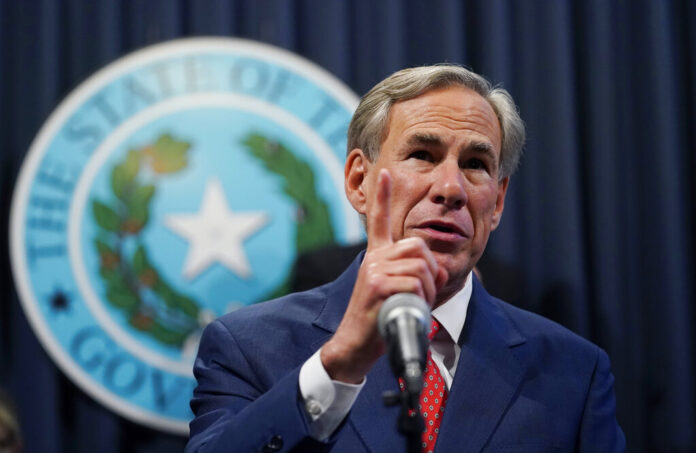Our nation’s founders recognized the value of dissent — in fact, they considered it essential to progress. Frank discussion of opposing viewpoints, they frequently wrote, is the best way to determine the best policies and solutions to problems. They thought so much of protecting the people’s right to disagree that the very first item in our Bill of Rights — the very first amendment to our Constitution — not only guarantees our right to speak freely, but it also has other provisions specifically protecting our right to protest, and to protest against our government.
Gov. Greg Abbott, a lawyer and former state attorney general, might need to reacquaint himself with our right to protest before he considers any legislation that specifically targets public protests.
Speaking at a news conference at the Dallas Police Association headquarters, Abbott announced several measures that would strengthen existing crimes and create new ones for people participating in any activity that police might categorize as a riot.
Under the proposals, anyone who causes injury or damages property during a protest could be charged with a felony, as would anyone who points a laser beam toward a law enforcement official. Blocking emergency routes such as entrances to hospitals also would be felonies. The governor asserted that anyone who threw a water bottle could spend a minimum of six months in jail if that bottle hit a police officer.
Attacks on or injury to first responders already are prosecuted as hate crimes under a law Abbott promoted and signed in 2017.
Special laws against protesters shouldn’t be necessary if the primary intent is to address violence. Laws against such violence already exist, and there should be no reason to address the same actions differently because they occurred during a public protest; people who damage a car, for example, during a constitutionally protected protest should not face more severe charges than revelers who flip over vehicles after their team wins the national championship.
Perhaps the greatest concern is the fact that anti-protest legislation creates the kind of laws that historically have led to extreme enforcement that goes beyond lawmakers’ intent. We can’t be surprised if, using the rationale under which accomplices are prosecuted, several peaceful protesters are arrested and charged with felony crimes because one of them threw a rock through a store window — or at a police officer.
People seeking office should know that they always will face criticism for their actions, no matter the intent of those actions, or even their results. Some officials, however, at all levels — local, state and federal — have proven to be thin-skinned and taken great umbrage against even minor criticisms. Creating laws specifically for protests would give them a powerful weapon to use against critics, even when the criticisms are valid.
We hope that in the two months leading up to our legislative session, Gov. Abbott comes to recognize the can of worms, and constitutional concerns, anti-protest legislation could create, and rethinks his proposal that could silence valid — and sometimes necessary — protest and criticism.



